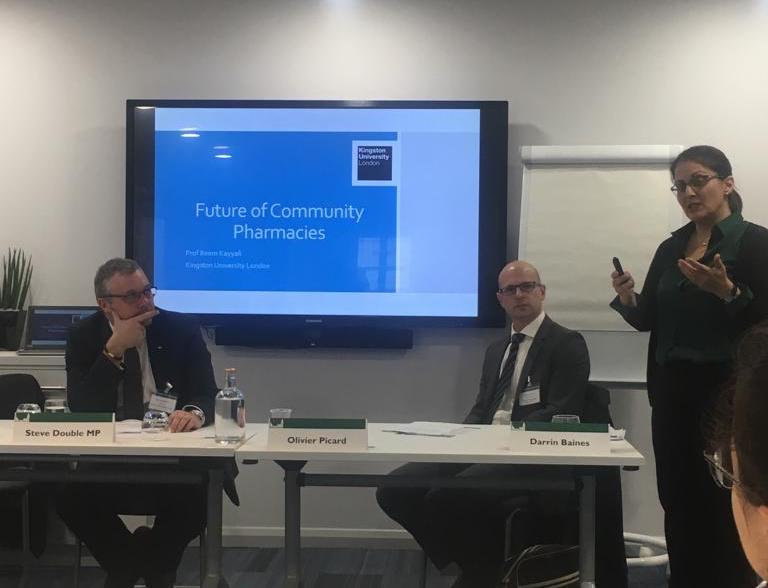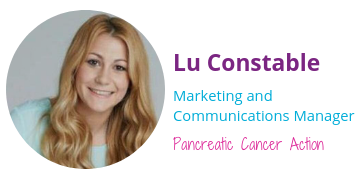The Future of Community Pharmacy
Last week, myself and Kirstin (Health Marketing Officer) attended the Future of Community Pharmacy event.
This was a fantastic opportunity for us to speak with, and learn from, passionate people in the sector who had different interactions with community pharmacy.

Why did we go?
Pancreatic Cancer Action strongly believe that pharmacy teams play a vital role in helping to aid early diagnosis of pancreatic cancer. We’re keen to ensure that our campaigns and communication for pharmacists are relevant and useful. We were also interested to find new ways we can promote our resources to pharmacist.
Who was in the room?
We had the opportunity to speak with people form the National Pharmacy Association, Prostate Cancer UK, NHS Stop Smoking leads and pharmaicsts from across the UK. There was a fantastic panel of speakers including:
- Steve Double MP and Vice Chair of the All Party Parliamentary Group on Pharmacy
- Olivier Picard, Pharmacist and Board Member, national Pharmacy Association
- Professor Reem Kayyali, Pharmacist and Head of the Department of Pharmacy at Kingston University London
- Professor Darrin Baines, Professor of Health Economics, Bournemouth University
- Martin Bollard, former Nurse and Associate Head of School for Research, Faculty of Health and Life Sciences – Coventry University

What did we learn?
The key theme of the day seemed to keep leaning toward public perception of the pharmacy community. Many pharmacists feel that they’re just seen as shop keepers or medicine dispensers. When in fact, pharmacists are experts in medicine and extremely knowledgeable about many health issues. Professor Reem Kayyali said:
“We have always been seen as the support and not the main healthcare professional”
Steve Double touched on the fact that community pharmacy can make healthcare more accessible, particularly in rural areas – a health hub for that community when other areas of the healthcare system aren’t readily available.
The average waiting time to see a pharmacist is 8 minutes (and in many cases considerably less) and there’s no other part of the NHS where this is the case. It’s also the only part of the NHS that is free for patients to spend time with a healthcare professional.
What needs to happen in the future?
- Public perception of what pharmacists can do needs to change
- Pharmacists need a digital solution to properly refer patients to GPs
- Pharmacists have the potential to relieve pressure from other areas of the healthcare service
- The Department of Health need to properly invest in community pharmacy – £2 today could save £10 in the future
- Certain medicine is accessible over the counter, therefore we need to encourage patients to minimise NHS costs and go directly to the pharmacist
